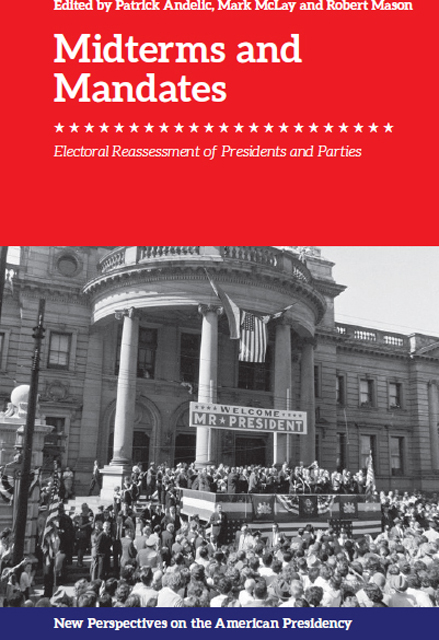Book contents
- Frontmatter
- Contents
- List of Figures and Tables
- Acknowledgements
- Notes on Contributors
- Preface: Why Midterms Matter
- Introduction: Midterms and Mandates, Presidents and Parties
- Part One Midterm Elections in Institutional Context
- Part Two Testing the New Deal Coalition
- Part Three The Republican Resurgence
- Index
Preface: Why Midterms Matter
Published online by Cambridge University Press: 07 June 2023
- Frontmatter
- Contents
- List of Figures and Tables
- Acknowledgements
- Notes on Contributors
- Preface: Why Midterms Matter
- Introduction: Midterms and Mandates, Presidents and Parties
- Part One Midterm Elections in Institutional Context
- Part Two Testing the New Deal Coalition
- Part Three The Republican Resurgence
- Index
Summary
Elections do more than change who is in power. They also form the basis for narratives and stories about what is new in politics, and which political forces resist efforts to dislodge them. After the ballots are counted, politicians, the media and ordinary citizens begin to assign meaning to the results as a signal about where the nation is headed and what its voters have to say about it. Presidential elections lend themselves to this kind of analysis, but midterm elections have increasingly become subject to these larger narratives.
Perhaps the most obvious and prominent of these narratives is the idea of the ‘referendum’ on a presidential administration. The very phrase ‘midterm elections’ signals their connection to the president. While senators, representatives, governors and other officials are elected by their own constituencies, with distinct constitutional and governing prerogatives, their elections take place in the middle of a presidential term. From an election interpretation standpoint, the referendum view is a somewhat limited one, however. For one thing, the referendum is very rarely a positive one – the president’s party, with a few exceptions, loses seats. It is hardly a meaningful referendum if we already know the results in advance. In addition, midterm elections carry substantive and symbolic significance all their own, and have lasting impacts on American politics well beyond the presidential term within which they occur.
Twenty-first-century midterm elections have proven significant and widely subject to interpretation. The 2010 midterms, famously interpreted by Obama as a ‘shellacking’, saw the rise of the Tea Party and a historic seat loss by House Democrats, as well as major losses at the state level. These losses, and those of the 2014 midterms, form the basis of Obama’s lacklustre legacy as a party leader. This legacy illustrates not only the challenges faced by Obama, but the broader phenomenon of his presidency – a popular, charismatic figure without the institutional resources or acumen to sustain a deeper movement. Taking the mediated, individualistic presidency to a new level, we saw Donald Trump win a surprise election in 2016 and enjoy Republican majorities for his first two years in office, only to have his party lose control of the House in the ‘blue wave’ of 2018.
- Type
- Chapter
- Information
- Midterms and MandatesElectoral Reassessment of Presidents and Parties, pp. xiv - xxiiPublisher: Edinburgh University PressPrint publication year: 2022



